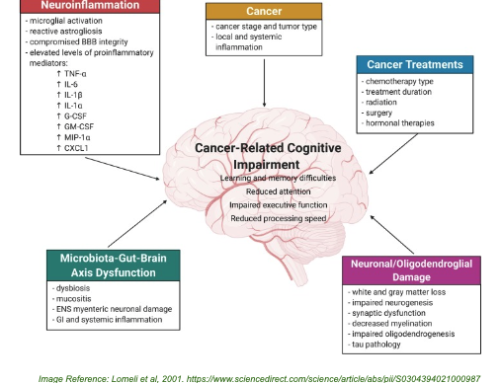Medication is a core component of treatment for many health conditions and patients often face a bewildering regime of tablets and medications that need to be taken at various time and days.
While following the advice of a health care team seems the most sensible course of action, side effects and resistance to taking certain medications such as painkillers causes some people to stop taking their medication.
In fact, a World Health Organisation report showed that poor adherence to medication for chronic diseases is a worldwide problem with long term adherence to therapy sitting at just 50 per cent in developed countries. The consequences of this are poorer health outcomes, lower quality of life and reduced effectiveness of treatment.
This begs the question, why do cancer patients stop taking their medication? We spoke to Valion Health Registered Nurse and Care Coordinator Karen to learn more.
Karen has spent most of her working life as a registered nurse in cancer care and palliative care settings and says an important part of her role is to guide patients to the right allied health professionals and provide support to ensure they stick to their medication regime.
Karen says that the reasons why people don’t stick to their medication are complex and individual and that they are sometimes bound up with an urge to limit medications that may be viewed as optional, such as pain killers, anti-nausea or heart burn medication.
“People managing side effects on top of chemotherapy often don’t want to take additional medication.
“For example I saw a woman this week who just finished 12 cycles of chemotherapy, she was completely over it and on the last cycle, finally took her pain killer and her anti-nausea medication and was like ‘oh wow!’
“She was so angry at herself for putting herself through more misery than necessary for 11 cycles by not adhering to her recommended medication regime.”
Karen says healthcare providers have an important role in providing information to patients to educate them about the way medications work together to alleviate and manage symptoms and to reassure them that taking additional medication won’t necessarily lead to additional side effects.
5 strategies for success
Karen says compliance to medication is a multi-faceted issue that changes according to the stage of treatment and the experiences and preferences of patients, but she says there are five simple strategies patients can implement to increase the likelihood of success.
See a regular GP
General practitioners are often the most consistent point of contact for cancer patients and Karen says the value of a regular GP can’t be overstated, especially when there are a range of comorbidities and medications to be managed.
“It’s easy to become focused on one particular issue when it comes to medications, but when there are other health issues that need to be managed a regular and consistent GP can ensure there is a balanced approach,” said Karen.
Make friends with your pharmacist
Karen says community pharmacists are one of the most useful and reliable resources available to patients. A pharmacist can conduct a regular review of medication and ensure there are no obvious clashes, which can happen if there are multiple healthcare providers prescribing.
Patients can also speak to their pharmacists about side effects of medications and efficacy time frames, which can be very helpful between visits to the healthcare team.
Pharmacists can also provide medications in Webster packing, which organises doses by day and time of day. Webster packs are very useful for patients taking multiple tablets at different time across a week and may significantly reduce anxiety from missing a pill.
Keep a written record
This seems obvious, but Karen says quite often patients don’t have a written record of what they need to take and when and importantly any effects of the medication. Karen says this can be as simple as a piece of paper with the regime clearly written down, but she says diaries and notebooks are also useful.
There are also Apps that cancer patients can download on their phones which make it simple to keep track of medications and side effects by prompting users to think about the immediate aftereffects of taking their medications.
While empowering for patients, Karen says this information can also be very helpful for healthcare providers, especially if there are unwanted and unexpected side effects.
“We want to know how much patients are taking, what they are not taking, what’s working and what’s not and we can use this information to look at different medications if things aren’t working. The more information the better!”
Use a support person
There’s a lot going on in the life of a cancer patient and mental organisation can be impacted by fatigue, anxiety and ‘chemo-brain’. Staying on top of a complicated medication regime is an added pressure, but oftentimes one that can be outsourced to a reliable friend, partner or family member.
Karen says support people can be charged with the responsibility of distributing medication on the right time and day, but they can also serve as useful sources of information during appointments.
“Didn’t you say you wanted to ask your oncologist about that new medication and what about that weird side effect you had last week…these are the sorts of conversations support people can have during appointments with doctors,” said Karen.
Take copies of scripts to appointments
For patients attending multiple appointments with a range of specialists, Karen also recommends keeping a copy of scripts, or a list of medications available to show health professionals whenever a new medication is proposed.
“While information is usually sent back to the referring GP, sometimes there is a gap in communication between specialists. Keeping a copy of documents handy if you’re seeing your cancer specialist one week and your diabetes specialist the next, means there is less chance of gaps,” she said.
What to do if you forget your medication
Helpful tips and tricks aside, sometimes life catches up and overwhelms us and that’s when it’s easy to forget to take medication. When this happens it’s important to stay calm and try and work out which medications you forgot to take and when.
Following this the best course of action is to call the appropriate healthcare provider.
“Most patients are well supported by their GPs so if a patient forgets their medications, I’d suggest starting there. Some patients might be better to link with their specialist or other healthcare teams”.
“The most important thing to remember is that there is always someone out there who can help,” said Karen.



